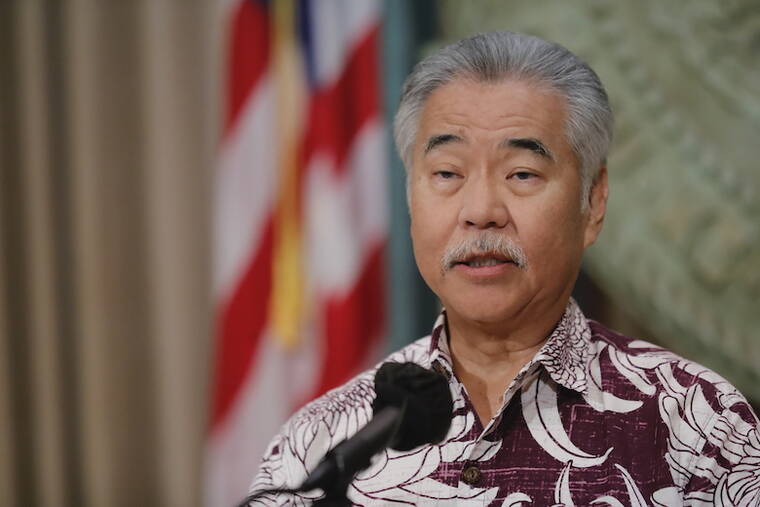A new law setting stricter rules for governmental bodies holding remote meetings, including a requirement to provide a physical location for the public to testify, is supposed to go into effect Saturday, but Gov. David Ige has delayed that part of the new law in an emergency proclamation effective through Feb. 28.
Ige said in the proclamation Wednesday that the new law was suspended “only to the extent necessary to suspend the requirement to have at least one meeting location that is open to the public. This limited suspension ensures entities can conduct meetings safely under the Sunshine Law using interactive conference technology given the recent increase in COVID-19 cases, while retaining in force all other provisions of Act 220.”
Hawaii County Clerk Jon Henricks said his office had written to Ige on Tuesday, asking him to hold off on the in-person portion of the law until the current coronavirus surge subsides. Both the state and the county hit record numbers of new cases on Thursday, with the state reporting 3,484 new cases and the county 242.
“I am concerned, obviously, that we’re not in the best place right now,” Henricks had said Wednesday before the governor issued the proclamation.
Because County Council committee agendas had to be posted Wednesday to meet state Sunshine Law requirements, they do have notification that the public can testify at the Hilo council chambers.
“We posted our committee agendas yesterday, prior to receiving notice of this extension of the emergency proclamation,” Henricks said Thursday. “We will be posting an update to the agendas notifying that the committee meetings are not open for in-person public attendance, pursuant to the extension of the emergency proclamation.”
Act 220, signed by the governor in July, codifies in law what were emergency practices for remote meetings that had been used since the coronavirus pandemic hit Hawaii in early 2020. In addition to requiring notices that explain to the public how to submit testimony and provide a physical location for them to testify in person, the new law requires the board or commission to vote by roll call if the vote isn’t unanimous, and the board must record a remote meeting “when practicable,” and make the recording available to the public after the meeting until the meeting minutes have been posted online.
It also requires the state Office of Information Practices in consultation with the Disability and Communication Access Board and the Office of Enterprise Technology Services, to assess and report on the implementation of remote meetings, including participation by members of the public who need an accommodation due to a disability, before the 2023 legislative session.
“While the bill thus expands public and board participation and access throughout our island state by allowing for remote meetings, it also recognizes that there is a digital divide that could affect members of the public or board who do not have the equipment, reliable internet connection, skills, or desire to participate online,” OIP said in its summary of the new legislation.









